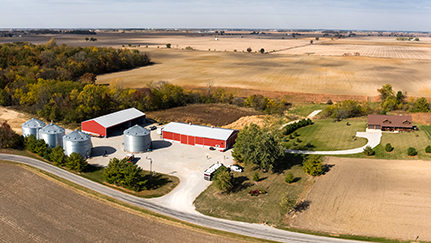Farm & agribusiness resources
Do you need farm insurance?
Making lease agreements a win-win
Watch how a farmland owner and tenant work together to make their partnership work
We have resources to help you manage the ownership or renting of farmland.
Our most recent information for new farmland leasers and owners
Get more information
Learn about Nationwide agribusiness insurance
Subscribe to the Ag Insight Center email newsletter
